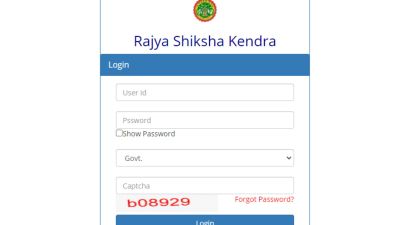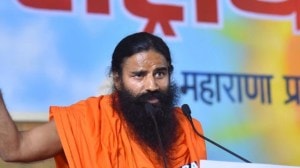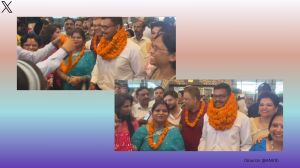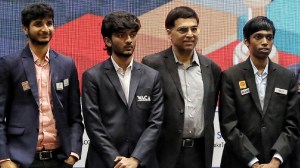- India
- International
Rich people don’t need law as much as the poor do: Vikramjit Sen
The recently retired Supreme Court judge discusses uniform civil code, section 377 and Kerala liquor policy with Utkarsh Anand.
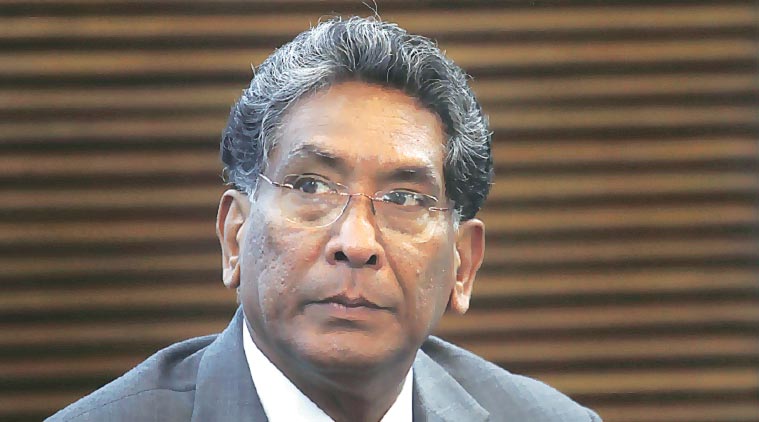 Vikramjit Sen
Vikramjit Sen
Justice Vikramjit Sen retired on December 30 after three years as a Supreme Court judge. Among his key judgments were upholding the Kerala government’s restrictive policy on liquor and ruling that a single mother can be appointed the sole legal guardian of her child without the consent of the father. He also led the bench that asked the government if it is serious about bringing the uniform civil code. Excerpts from a wide-ranging interview:
On validity of IPC section 377 that criminalises homosexuality
I think the time has come for Section 377 to go. Why do a penal law and a court have to regulate what you do in private? Personal choices are to be validated if they do not violate anybody else’s rights? The Supreme Court judgment wanted Parliament to take a call on this. Why is Parliament not doing it? Parliament has to change laws. I agree with the view that the lawmakers have the primary duty to appreciate the changing times and make the right decision to protect the rights of all groups. However, I also feel that if the top court has consciously interfered with various policy decisions, has read down as well as held unconstitutional various laws; there was no impediment for the bench concerned to exercise its power in respect of Section 377 too. When I was the Chief Justice of Karnataka High Court in 2012, for the first time we took on board a transgender as a court employee. People questioned my decision but I am proud of my call. And today that person has impressed everyone with skills and dedication.
On uniform civil code
Secularism does not mean recognising all religions. It means not recognising any religion and that is why a uniform civil code is a major step towards attaining true secularism. Why should personal laws be allowed to impact civil rights and freedom of people? After all, religion is a private affair. Why should the state recognise any religion? It has to leave matters of religion to people and focus on guaranteeing rights to everyone under the Constitution. If you ask me, many religions are ready to adopt a uniform civil code. I acknowledge there are some reservations in certain sections of a minority community but women across communities definitely want it and the uniform code will be beneficial to women.
Parliament has to do it. A government in majority must strive towards the uniform civil code. As a judge, I was willing to stick my neck out if Parliament was ready for it. Let there be views and opinions from across the board and a point of consensus be reached on the uniform civil code. It will be great deal even if we achieve 50 per cent success in this endeavour and a right beginning is made.
On intolerance and Islamic State
I would refrain from commenting on it since it has become a political issue. For me, secularism entails unqualified tolerance of all thoughts and beliefs and it is only through tolerance that our country will reach great heights. Religion is important because it teaches you ethics. It teaches you to have your own faith and at the same time respect those who may have different beliefs. I am a Christian man married to a Hindu woman. You ask my children about their religion and they would answer, how is it relevant since they have respect for all faiths and beliefs? What Islamic State is doing today is a sign of intolerance and it is extremely unfortunate. And therefore, it must also be highlighted that the Muslim community in India has opposed their propaganda and their methods.

On pollution in Delhi and odd-even policy
It is reassuring that pollution has taken centre-stage and I am hopeful all the deliberations and attempts will lead to some positive results. The success or otherwise of the odd-even policy is yet to be seen, so it will not be prudent for me to comment upon it. I belong to Delhi and therefore it is a positive sign to see people trying to clean the city’s air. The fact that the issue of pollution has triggered debates and generated awareness is definitely commendable.
On collegium for appointing judges versus National Judicial Appointments Commission
There have been questions and issues on both sides. I have been the Chief Justice of Karnataka High Court, so I can tell you from first-hand experience that the whole idea of judges appointing judges may not be absolutely right. I am a first-generation lawyer. The then Chief Justice of India had put in a word for me for my appointment as a judge in Delhi High Court when I argued a case before him. He did not know me at all. He asked his fellow judge, who was from Delhi, to check my background and then recommended my name. Will you call it a judge appointing a judge? Recently, Justice T S Thakur asked me to check the profile of a lawyer who was very articulate in his arguments and showed excellent legal acumen but neither of us knew who he was. After a week, I informed him that the lawyer has a brilliant track record but he was not 45. Had this lawyer been 45 years old, Justice Thakur might have recommended his name. Can this be called a judge appointing a judge? Every system has its flaws but you need to weigh them with the possible dangers of a new system. There is also misgiving about judges’ children becoming judges. Judges may not have affluent lifestyles but they do have job satisfaction and pride. Judges’ children grow up witnessing this. So what is wrong about their children opting for a job which they see their parents so proud of?
On upholding Kerala government’s liquor policy
Judges don’t need to explain their judgments. We give our reasons in the judgments itself. However, since you are asking me this, I will tell you that upholding the state government’s attempt to ban serving and consumption of liquor in public had nothing to do with morality. I love my drink. I am one of the most social judges around. But as a judge, I need to decide the issues before us and prohibition of liquor was never a challenge before us. People need to read the judgment in the right context and should also be legally equipped to appreciate what the issues before us were. They can then find answers to their questions, based purely on law and the Constitution.
On judges’ conference in 2014 being held on Good Friday
It was a case of mishandling and then it unfortunately became political, which should have never happened. I don’t think it was intentional. No Supreme Court judge is a political animal, nor does he or she want to court controversies. Both the then Chief Justice (H L Dattu) and the judge concerned (Justice Kurian Joseph) had good intentions but the matter was not handled well and it went into a tailspin. I have been the chief justice of a high court and I can say I would have handled it differently. I think human relations are very important. But here the whole thing was blown out of proportion and it became political too. I feel the controversy was avoidable and it was unfortunate how the events spanned out. When I was a judge in Delhi High Court, I raised objections to some rituals and one can still find my letter written to the chief justice of the high court.
On new Chief Justice of India T S Thakur
He is an outstanding person. He knows the law, he is a very strong person and I am sure he will be in a position to implement various positive measures. The problem with chief justices is that they work too hard. They have to sit in courts, hear cases and write judgments, apart from managing administration. I feel as a chief justice, they should have ample time for administration. Justice Thakur is all there and he has the capacity to do the job. I am sure this is going to be a positive tenure.
On his tenure in Supreme Court
I don’t have any regrets on my tenure. I feel I have been very lucky to be a judge. I have always tried to do the right thing because I ought to answer my conscience everyday. I firmly believe the judge has to finally decide and lawyers only help them in deciding. A good or a bad lawyer does not absolve judges of their duty to decide. As a judge, I figured out ways to ensure people do not lose out on their rights and benefits due to strict letters of law. This is the job of a judge. I have believed the law is meant for the poor. Rich people do not need the law as much as the poor do. We have to keep devising ways to make sure the law works for the poor people. And I did the best I could.
On post-retirement assignments
I am a little sad about the fact that I am leaving office at a time when I have experience on my side, my health is supporting me and I am willing to contribute more. Therefore, I am ready to take up any assignment if it can help me contribute further to the cause of justice. Given a choice, I will prefer a job with an opportunity to serve the society over arbitration cases that can get me a lot of attention and money.
Must Read
Apr 23: Latest News
- 01
- 02
- 03
- 04
- 05











